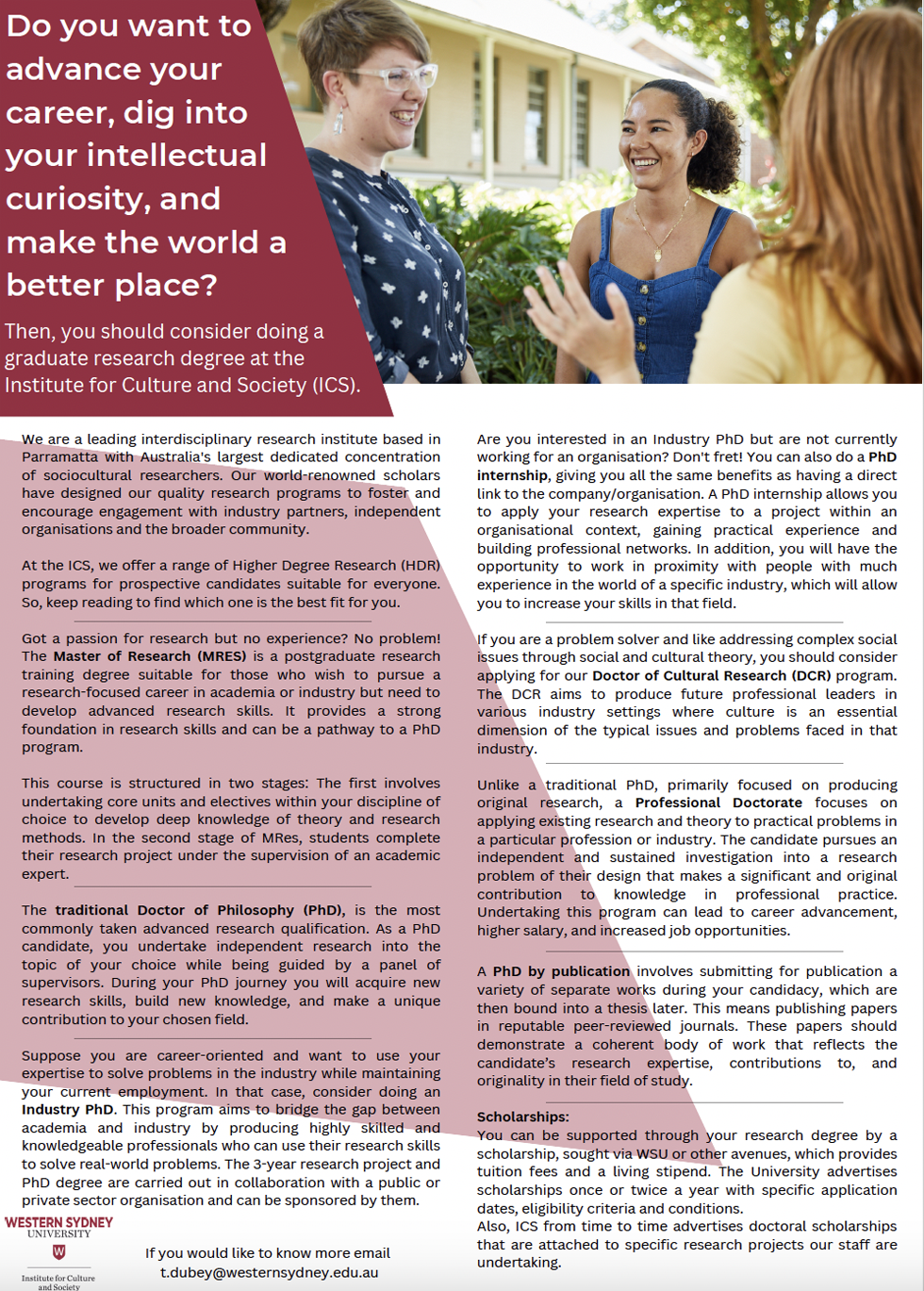Doctorate
A research degree provides training and education with the objective of producing graduates with the capacity to conduct research independently at a high level of originality and quality.
A research candidate will uncover new knowledge either by the discovery of new facts, the formulation of theories or the innovative re-interpretation of known data and established ideas.
There are two research programs offered:
- Doctor of Philosophy (PhD) - provides training and education with the objective of producing graduates with the capacity to conduct research independently at a high level of originality and quality
- Doctor of Cultural Research - designed to produce future professional leaders in a range of industry settings where culture is an important dimension of the typical issues and problems faced in that workplace or organisation
If you do not meet the criteria for entry to the Doctor of Philosophy (PhD) or the Doctor of Cultural Research, you might like to consider one of the following Master programs as a pathway:
- Master of Philosophy - is undertaken as a supervised program of original research. It is suited to those with some research training and experience, but who do not meet the eligibility criteria for direct entry into the Doctor of Philosophy (PhD)
- Master of Research (MRes) - an internationally recognised postgraduate research training degree that will make you competitive in achieving your future academic and career aspirations in the exciting world of research. This degree provides you with the experience and expert knowledge you need to confidently approach PhD studies and a research career
Dr Salazar's ARC research project examines the ‘gateway cities’ to Antarctica.
Research Scholarships
Research scholarships have been established to financially support you as you pursue your research degree. Various scholarship rounds and projects are made available across a wide range of disciplines.
Types of Higher Degree Research Paths
Find out more
- How to apply for the Doctor of Philosophy and Professional Doctorates
- Contact Associate Professor Fiona Cameron, HDR Director of ICS





